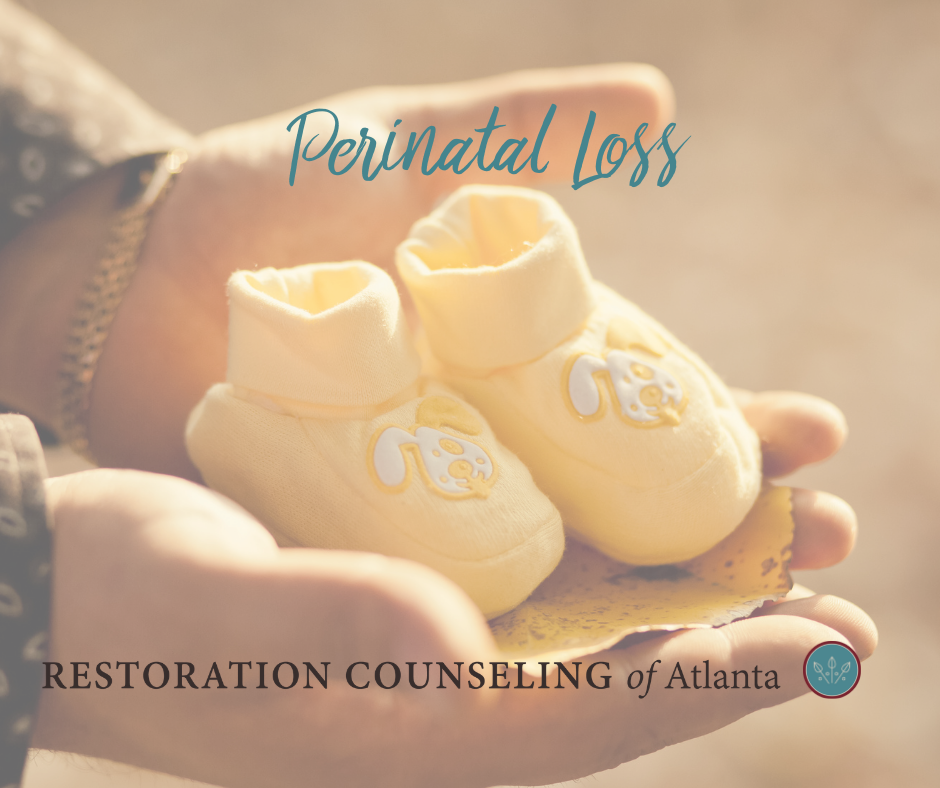Losing a baby before or after birth (perinatal loss) is one of the most difficult experiences a parent will ever endure. The following information may help.
Feelings Vary after Loss
- There is no specific way anyone “should” feel. Some experience profound grief with possible coexisting depression. Others may transition easily. Partners often process loss differently and at different stages. Give space for your own process and for your partner.
- Shame, self-blame, and guilt are unfounded. Losing a baby has nothing to do with your body failing you or not being enough.
- It’s normal to experience sudden sadness or despair when seeing other pregnant mothers or babies. Holidays, anniversaries, even doctor’s offices, or any association with your particular loss can feel devastating.
Grief is a Process
- Grief has stages:
- Denial
- Anger
- Bargaining
- Depression
- Acceptance
- Finding Purpose
- These stages are common in normal bereavement. Unlike bereavement, Postpartum Depression is often more debilitating requiring specific resources to overcome. Treatments like therapy or medication are typical evidence-based options.
Your Needs are Unique
- Grief often passes on its own with the support of others. Wanting to talk about your loss can be important to you. Let others know this is a need for you. Perinatal loss is a loss of identity. This is particularly hard to experience with others outside of a dedicated support group. You need to know that you’re not alone and there are many resources and support groups available for your unique situation.
- Wanting to isolate can be a common tendency. Receiving support from family members can be part of the healing journey. Sometimes partners or family members are also hurting and don’t know how to help. Therapy can help each partner be supportive of each other.
- If you are having thoughts of harming yourself or someone else, reach out immediately for help. Calling 911 is the easiest resource to remember.
- Gaining strength and wanting to move on is healthy. It does not mean the identity and value of the baby that you lost will be forgotten. Allowing yourself to feel better can help you find purpose and honor the memory of your baby.
How Others Can Help
Perhaps you are the family member or friend of someone who has gone through a perinatal loss. You may be wondering how you can be supportive. Here are some suggestions:
- Avoid re-framing the event as a “blessing” or having some positive outcome.
- Avoid any statements that begin with, “At least…”
- Be a good listener even if you don’t know what to say. Saying “I don’t know what to say, but I’m so grateful that you shared this with me,” or “I’m so sorry. I’m here for you,” can be helpful.
- Provide food or practical help just as you would for any loss. Remember to keep up the support for more than just the first few weeks.
If You Need Additional Help
We have counselors who are available to talk and provide additional information and resources. You may benefit from therapy or a referral for other types of support.
by Debbie Turner, LPC

